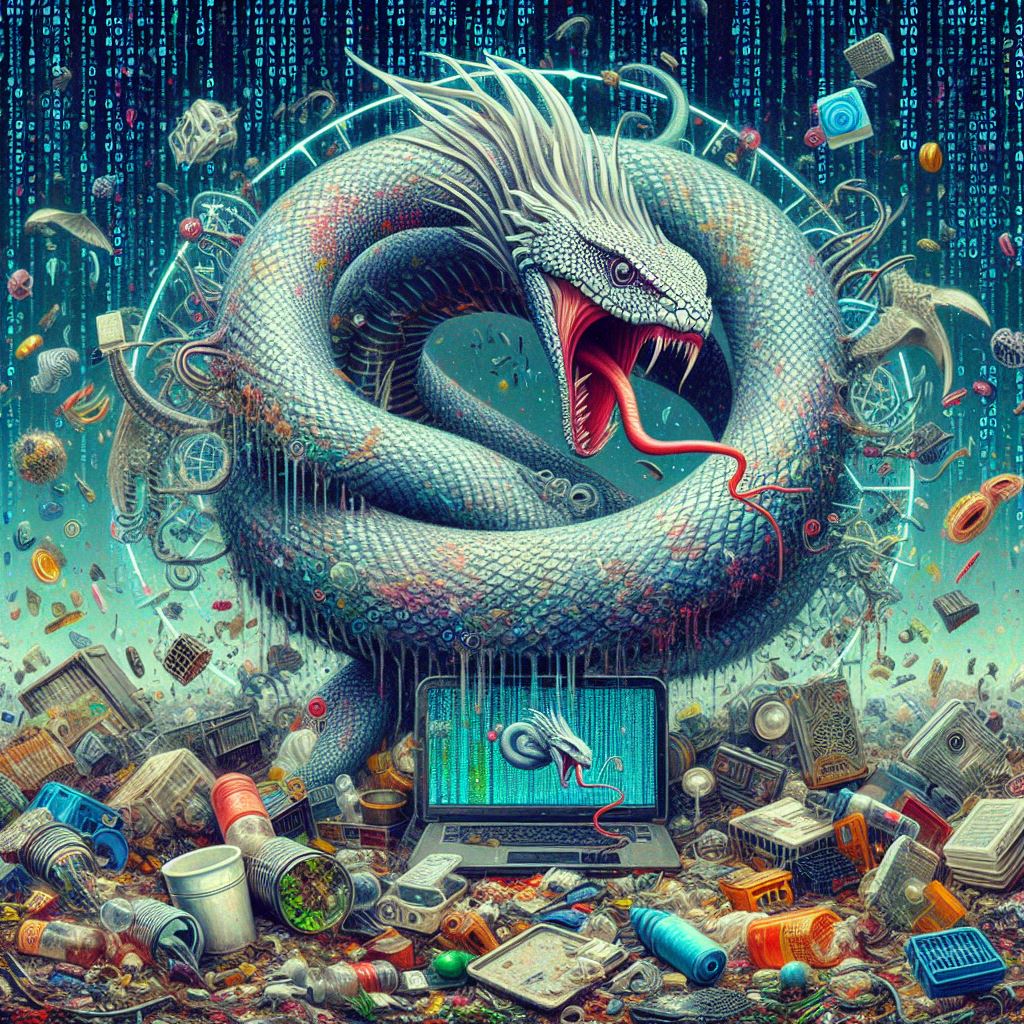For someone who meditates, the undeniable ‘mark’ of their practice (so to speak) is the degree to which they are able to ‘let things be what they are’. This is not to say that we meditate in order to get better at letting things be ‘what they are’ (which would be a deeply paradoxical aim!) but this is nevertheless the mark of our practice. This is what it all comes down to – this and nothing else.
So there is a paradox here that we can’t get away and that paradox is precisely that we can’t get better at ‘letting things be what they are’ for a reason. We can’t rationally intend this, we can’t make a goal of it. If I am trying to get better at ‘letting things be what they already are’ for a reason then that the reason has to have something to do with our dissatisfaction with (or resistance to) to the situation of ‘things being what they are’. If I am intending anything, or making a goal of anything, then this is because I want things to be different from the way to the way that they actually are and so I am straightaway conflicted in my practice. I am conflicted right from the very beginning, therefore.
There’s no getting away from this paradox. There’s no getting away from this paradox just as long as we are utilising the instrument of the thinking mind. The thinking mind, after all, never does anything that is not for a reason. The thinking mind never does anything that is not for a reason and ‘a reason’ – as we have just said – is always some state of affairs that is different to the state of affairs that actually exists right now! The TM is a tool for changing things, for modifying things, for ‘ solving problems’, and so we are never going to be able to use it for ‘allowing things to be the way that they are’. That doesn’t stop us trying, however!
The reason that we keep trying to use the thinking mind for something that is completely contrary to its operating specifications (so to speak) is simply because we don’t know what else to do. We’ve got so used to using this instrument of ours ‘across the board’ – for all difficulties that crop up, for all situations that come our way, that we don’t even have the sense that there is any other possibility. If we can’t think ourselves out of the situation that we don’t want to be in (or into a situation that we do want to be in) then what are we to do? And yet, as Jesus says in Matthew 6:27, ‘Which of you, by taking thought, can add one cubit to his height?‘
Clearly, Jesus did not mean this to be understood literally – we all know that we can’t become taller just by thinking about it! We may take it as meaning that we can’t change ourselves by thinking about it (or that we can’t change our ‘state of being’ by thinking about it) which is something that we are almost always confused about. We almost always act as if we can change ‘the way that we are’ intentionally, which is to say by thinking about it. This is why – when we are not the way that we want to be – we tend to analyse, judge and criticise ourselves so much. When we are in a painful state of mind then, as is well known, the analysing, judging, and self-criticism (or ‘other-criticism’, if that’s the way we are inclined) escalate to the point where this mental activity becomes more punishing than the painful state that we were originally reacting against. We almost invariably ‘take against ourselves’ for being the way that we are even though we can’t do anything about it.
The reason for this situation, we might say, is that it is that – in everyday life – we idolise ‘personal will’. Personal will is – generally speaking – ‘God’ to us – we have no tolerance at all to it being thwarted. When we can’t get our own way then this seems like ‘an inexcusably bad thing’ to us, and consequently we find it all but impossible to be okay about it! This is – we could say – the ‘default state’ of the most if not all of us. We would see not being perturbed by ‘things not going our way’ as being rather odd, and we would see actually being okay about our plans going awry as being necessarily wrong. We shouldn’t be okay about this, we would probably say; what kind of person is okay about not obtaining their goals, after all? This boils down to the question as to what kind of person is okay about ‘failing’ or ‘losing’? That seems like a contradiction of terms.
The answer is of course that this the sort of person who isn’t driven all the time by needs or compulsions! The crude, unreflective, everyday way of looking at things would be to say that a person who is happy about not getting their own way is a person who has lost the will to live, what the actual truth of the matter is that this is a person who isn’t trying to fill some vacuum (some deep dark hole in themselves) with everything they do. What we call personal will, (if we call it anything that is) is generally nothing more than mere ‘mechanical reacting’ – it is an involuntary reflex which we – in our weakness – are habituated to passively going along with and (laughably) calling ‘our own free will’. The proof of this is of course that when our so-called ‘free will’ is thwarted, then straightaway we become angry, bitter, frustrated, dejected etc. The ‘black toxic smoke’ of negativity is released into the environment; all of a sudden a whole load of ‘bad vibes’ arrive on the scene.
When we ‘idolise personal will’ therefore (as we are encouraged on all sides to do by our consumerism-based culture) then what’s happening is that we are idolising mechanical reactivity. We are idolising that part of us which is a mere machine! Going back to what we started off by saying, the mark of our practise in meditation is when we are able to ‘allow things to be what they are’. The ‘machine part’ of ourselves can never do this – the machine-like part of ourselves can only allow things to be the way that they are when that ‘way’ fits its own specifications, but this isn’t any good really because its specifications are always far too narrow for reality to truly fit in with. We need only to think of someone who is very controlling or perfectionist in their nature (or of ourselves that we are being very controlling or perfectionist) to realise that this never works out the way we’d like it to. That’s a fool’s errand – the ‘machine-like part of us’ is always chasing abstract ideals that can’t be actually found in reality.
The conceptual mind can’t actually accept anything. The ‘categorical’ mind can’t actually accept anything – it can only ‘accept’ those aspects of reality that correspond to its categories and its categories are only artificial constructs, which means that they don’t really correspond to anything! Reality is fluid, unfixed, uncertain in its essence – how anything categorical mind ever ‘accept’ it therefore? ‘Acceptance’ – when used in connection with the thinking mind – is a meaningless word! In mindfulness we often hear that we should be ‘non-judgemental’ with regard to what’s going on around us, but with regard to the everyday mind this isn’t just ‘a tall order’, it’s flatly impossible. We’re asking for something that can’t ever happen…
The ‘machine-like part of us’ can never accept’ anything and it can never ‘not judge’. If we expect it to then this means that we just don’t understand anything. We don’t understand who we are for a start, and if we don’t understand who we are then how can we understand anything else? When we understand ourselves to be the ‘machine-like part of us’ (without of course knowing that we are doing so, since this machine-like part of us doesn’t actually portray itself as such to us) then we look at everything in this stilted, ungainly ‘machine-like’ way, and this conditional view of ourselves and the world doesn’t correspond to anything when it comes down to it since reality – in its essence – is not at all machine-like. Reality contains machines (just as it contains ‘rules’) but it is not a machine, it is not ‘a rule’. Or as we could also say, reality can quite happily contain all sorts of categories, but this in no way means that it is ‘a category’!
When we find that we are able to ‘accept’ (or ‘not judge’, then this is because we have discovered that part of ourselves that is not a machine – which is to say, we have discovered that part of ourselves which is real and not a projection of the conceptual mind. What this means therefore is that when we are able to unconditionally allow things ‘to be the way that they actually are’ then at the same time we are becoming aware of these things as they actually are in themselves. This – of course – puts a radically new perspective on this whole business of ‘letting things be what they are’ – it is by letting things be what they are that we ‘wake up’ to the world as it actually is, and ourselves as we actually are. It is only by unconditionally submitting to ‘things being the way that they actually are’ that we can become conscious, in other words.
What bigger thing could there be than ‘being aware of the world as it actually is, and ‘ourselves as we actually are’? What trumps this? What possibility outranks this? For the disconnected thinking mind lots of things are more important than this, of course. For the everyday thinking mind everything (or anything) is higher priority than seeing the world as it actually is! For the everyday thinking mind what is important is ‘getting things to be the way that it wants them to be (or the way it thinks they ought to be) and this means that ‘being aware of the world as it actually is’ and ‘being aware of ourselves as we actually are’ is given no priority at all! It is given zero priority and this is the consequence of ‘idolizing personal will’ – idolizing personal will means being committed to unconsciousness.
To our usual way of thinking, this business of ‘letting things be what they are’ doesn’t seem that much of a big deal at all – it hardly seems worth making a fuss over. We’ve got more important fish to fry, so to speak. This isn’t a very important fish to us. Actually, this isn’t on our ‘list of things to do’ at all, because we lazily assume that we have already done it. We could actually say that the everyday mind is completely crazy therefore; we could say that the everyday mind is completely crazy since it sees ‘everything else’ as being more important than seeing reality as it actually is! How insane is this? In another way however the thinking mind knows more than it lets on that it does – it knows more than it lets on that it does because it knows that if it did ‘let go the reigns’ then our understanding of ourselves and the world will be totally transformed and as a result it would lose its over-inflated role completely. The everyday (disconnected) thinking mind would then have to learn to ‘play second fiddle’ to consciousness and the one thing the everyday thinking mind does not want to do is lose its role, and learn to play second fiddle! Of its own accord it will never consent to this…







Jim Rocket
Hi, I was looking for a definition of ‘personal will’ and this article came up on Google. Thanks so much for writing it. Very enlightening and useful. The dilemma of applying will to remove will. Simply letting into awareness what is actually happening and not knowing what’s going to happen next, seems to be a way of sticking ones head out of the rabbit hole.